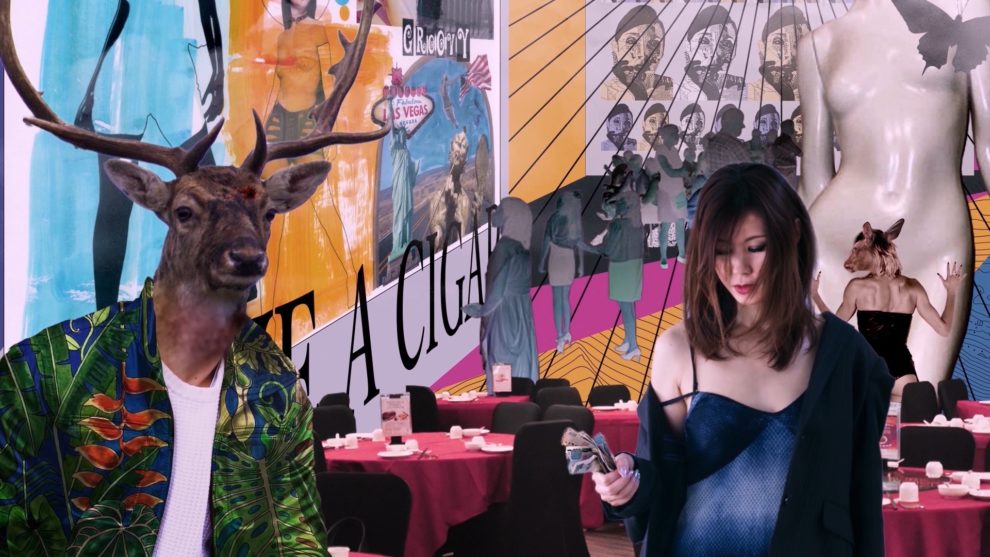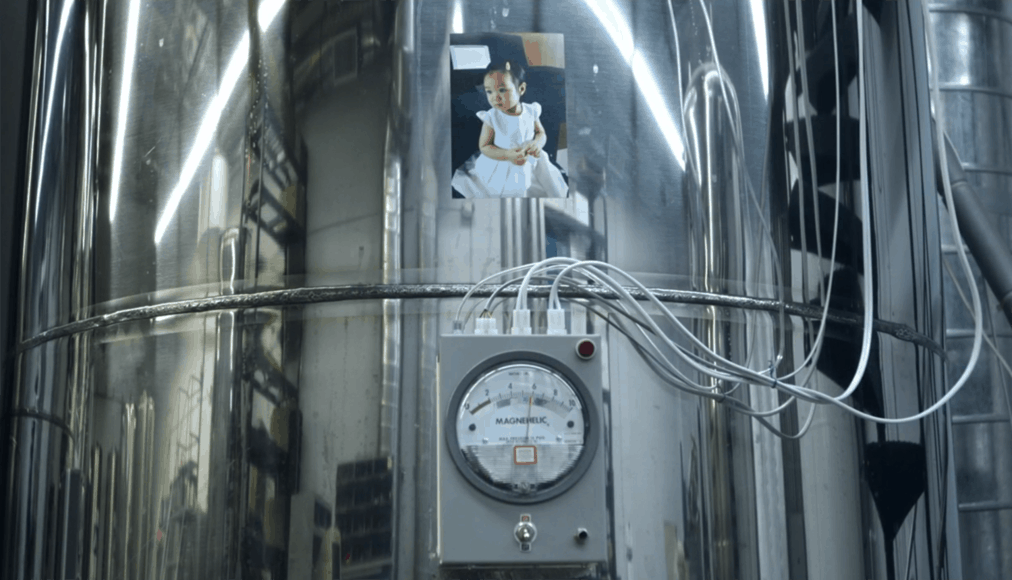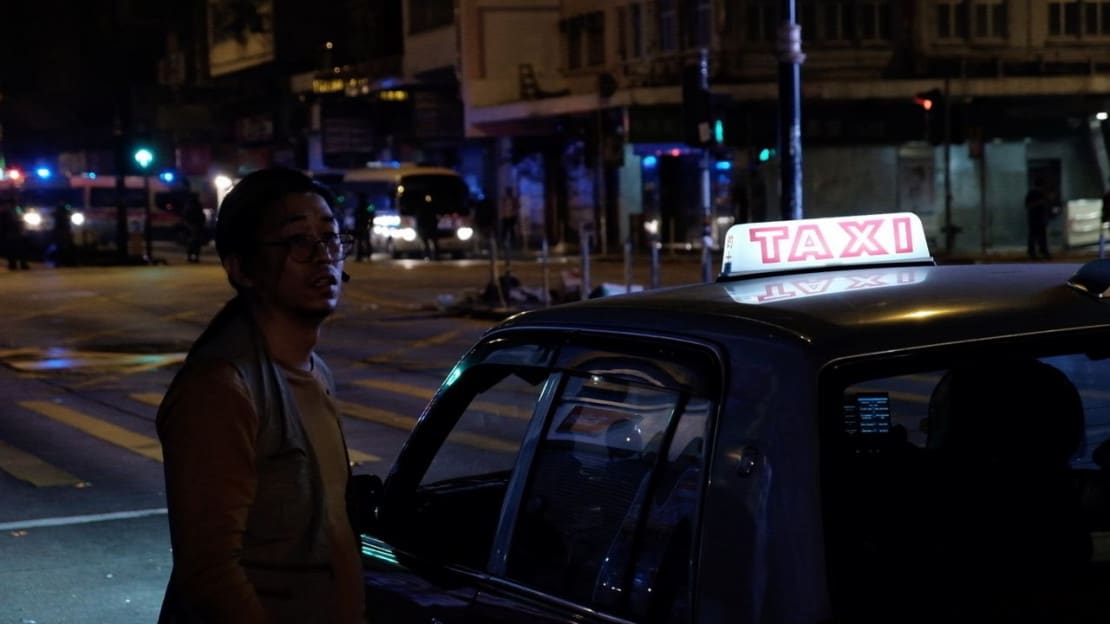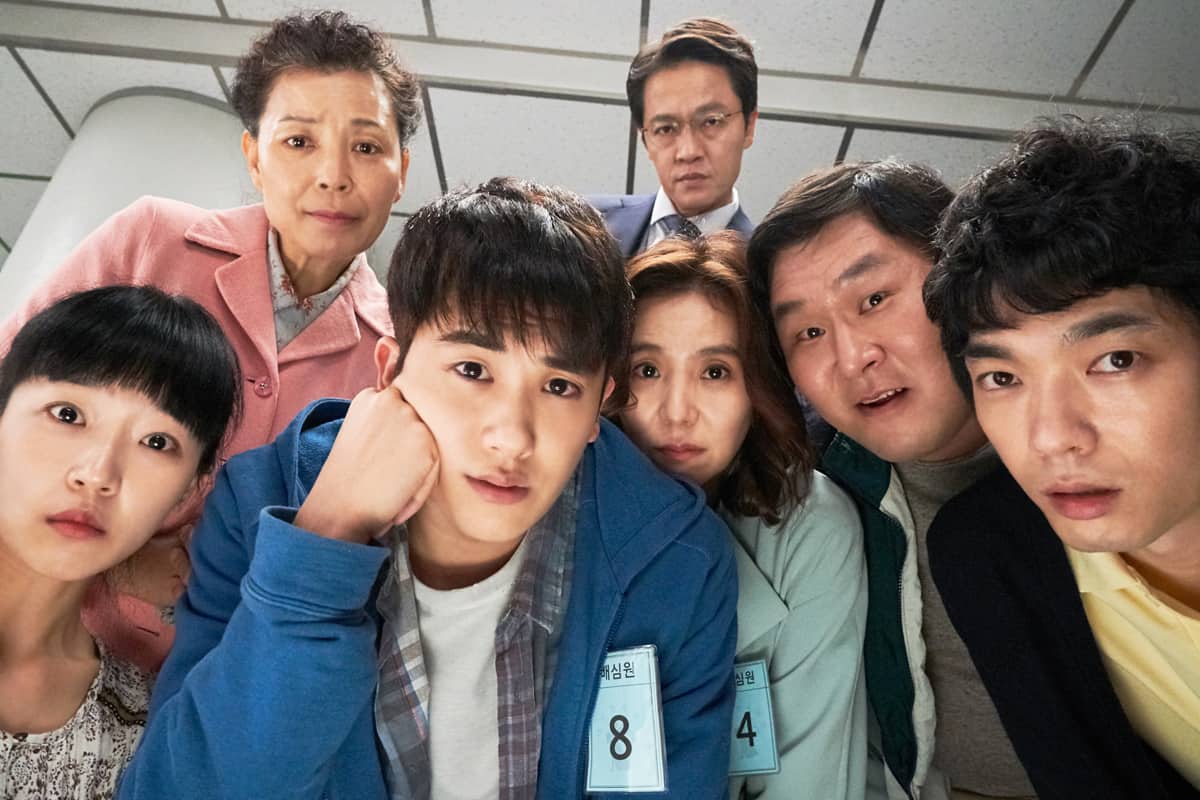Winner of the Cinema Fan Award at the last PIA Film Festival, “Luginsky” is a f**cked up mash-up of hallucinatory computer graphics, still photography and a collage of magazine cut-outs, which are implemented to unfold a story which seems as delirious as the protagonist.
“Luginsky” screened at the 42nd PIA Film Festival
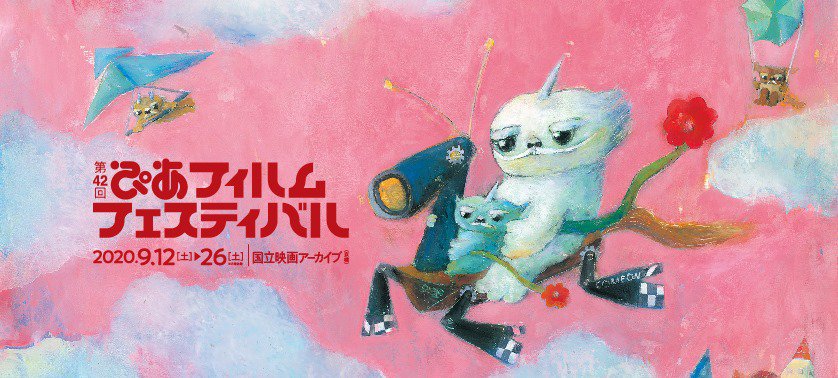
The main character of the story is Deerman, a man whose head is of a deer, who has suffered and accident resulting in chronic hallucinations and has lost his job, in a series of events that has led him to become a raging alcoholic, frequently ending up beaten up due to his drunken behaviour. His alcoholism takes a turn towards the even worse when he stumbles upon a panther-barman-priest who prepares for him a forbidden cocktail designed by ex-boxer Luginsky, that messes Deerman's head even more, as reality and drunken fantasy meddle in unprecedented ways. His interactions with his girlfriend, Mouchette, who initially wants nothing to do with him for losing his job, eventually end up in more adventures.
Evidently, the visuals here overshadow everything else, through the combination of the aforementioned elements with the rather monotonous voices of Nobu Otani as Deerman and Haiena as Barman, the hysteric one of Mao Mizuta as Mouchette, the repeated sound of glass breaking and the frantic pace implemented by Jean-Pierre Fujii's editing, resulting in a truly delirious film. At the same time, however, there is something in the movie, which does not let you turn your eyes away even for a minute, since Haiena has, somehow, managed to create a truly intriguing story filled with mystery and social comments, not to mention a sort of eroticism, as exhibited in the images of Mouchette.
The story behind the cocktail, the downward spiral of Deerman, the employment office,Mouchette talking about the rich and the poor and that the latter only have smoking, drinking, shopping, watching TV and sex for them, a shot in the head, and a drunken robbery all create a truly captivating narrative, that is bound to make the viewers feel as if they are on drugs too. The connection between being poor and resorting to crime also emerges as one of the central messages in the movie, although one has to be very focused and observant to realize this aspect in this cornucopia of surrealism.
Lastly, the anthropomorphism of the two main male characters and their juxtaposition in a setting that seems to be nominated by “normal” humans and the fact that the setting seems Japanese as much as French adds to the chaos even more, while giving a slight aesthete essence to the animation, particularly through the concept of the panther's bar.
“Luginsky” is more an experience than just a film, and in that regard, quite hard to analyze or review. Open-minded viewers, however, will definitely have a blast with this.


